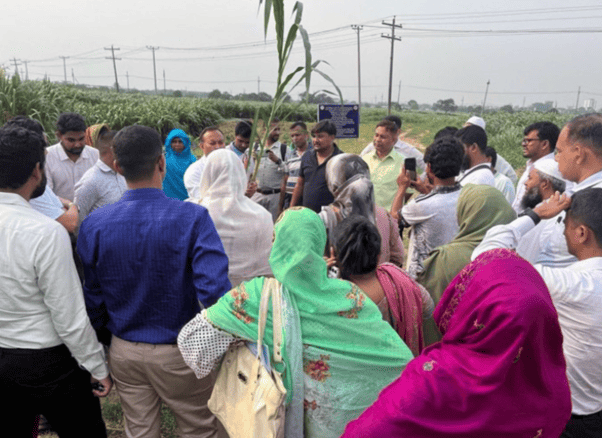Professor Cameron Clark delivered a training program at the Bangladesh Livestock Research Institute to improve Napier grass management.

Professor Cameron Clark from Charles Sturt University recently travelled to the Bangladesh Livestock Research Institute (BLRI) in Savar, Dhaka to deliver a targeted and evidence-driven training program. The training aimed to address a key constraint in Bangladesh’s smallholder cattle production systems: the poor nutritional quality of Napier grass, which remains a staple feed for ruminants across the country.
This initiative, supported by the Crawford Fund and delivered in collaboration with Charles Sturt University, was designed to empower farmers, extension agents and researchers with practical, research-based tools for improving feed-based management. The training program was a direct outcome of an ongoing partnership between Charles Sturt and BLRI.
“Over the past year, collaborative research demonstrated that strategic adjustments in sowing density and harvest frequency could significantly improve both the crude protein and metabolisable energy levels of Napier grass,” said Professor Clark.
“These enhancements directly translate into better livestock growth, improved milk yields and greater resilience to climatic shocks,” he said.
“Recognising the essential role that women play in livestock care, the training was also tailored to support inclusive participation and knowledge application at the household level,” said Professor Clark.
Held over five days, the program brought together 50 participants from across Bangladesh, including farmers, early-career researchers and livestock extension officers. Delivered bilingually in Bangla and English, the sessions provided a mix of classroom learning, field demonstrations and group discussion. Participants engaged directly with trial plots, observed growth variations under different management regimes, and practised techniques to assess plant quality and detect toxicities.
The project delivered practical, research-backed training to improve Napier grass management in Bangladesh, resulting in enhanced livestock nutrition, increased milk yield and greater resilience of smallholder farming systems to climate shocks. It strengthened local capacity through inclusive, hands-on learning and deepened international collaboration in sustainable agriculture.
Research problem
Smallholder cattle producers in Bangladesh rely heavily on Napier grass as a feed source, but its low nutritional quality significantly limits livestock productivity and resilience. Poor feed base management contributes to undernourished cattle, reduced milk yields and economic vulnerability, especially under increasingly variable climatic conditions.
Collaborators
Outcomes
Impact
